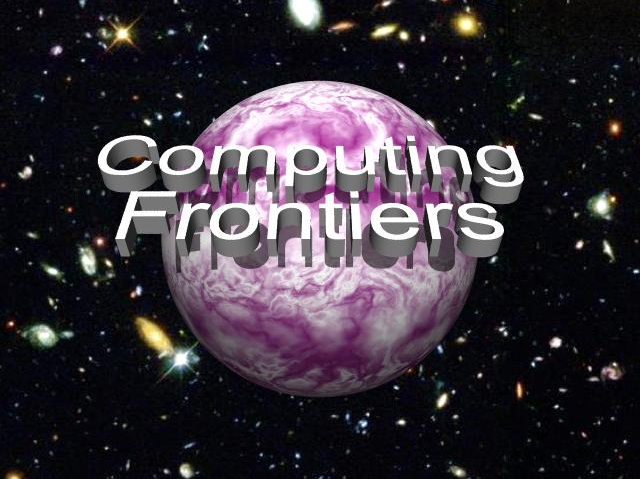
Computing Frontiers
May 2-5, 2006
 sponsored by ACM SIGMICRO
sponsored by ACM SIGMICRO 
 |
ACM International Conference on
Computing Frontiers Ischia, Italy
May 2-5, 2006
 sponsored by ACM SIGMICRO sponsored by ACM SIGMICRO |
 |
|
CF 2006 home page
Special Sessions
Cache optimizationDependability issues Information and forms Previous conferences
2004 |
2005
supported by
last modified |
Tutorial 1
May 2, 2006
9:00am - 12:00 noon
Computing with "Empty Space": A Workshop on Rubel's Extended Analog Computer
Jonathan Mills, Indiana University, US
This one-day workshop will provide an intensive, hands-on overview of the theory, design and applications of Rubels extended analog computer (EAC). Drawing on over a decades worth of research, teaching and work with industry, Professor Jonathan W. Mills will illustrate this new paradigm for unconventional computer architectures by bringing state-of-the-art, operational EACs for participants study and experimentation. Participants will briefly trace the theory of these machines from Kirchhoff through Turing to Shannon and finally the seminal paper written by Lee A. Rubel in which he first described the EAC. Topics will include continuous and discrete computation, fuzzy logic, relationship of the EAC to the computational hierarchy, precision versus discretization, configurations versus programs, using genetic algorithms to evolve EAC configurations, weak super-Turing computation, and the concept of complementarity. That concept has proved helpful to introduce the EAC to interested researchers and professionals who have a wealth of experience in a mostly digital world. Both advantages and disadvantages of EACs will be addressed. Participants will learn about the architecture of the extended analog computer, and discover why they are conceptually different from the 1950s-era, Shannon-style General Purpose Analog Computer. The most recent operational EACs will be available to illustrate how the design of an EAC is implemented in practice. Topics covered will include the two basic instructions of the EAC and their variants, the primary set of fuzzy logic functions, materials and their use as partial differential equation solvers, the glue needed to integrate EACs into the digital world, the configuration language used today to control these machines with digital computers. The design of a recently proposed distributed EAC supercomputer and its uses will be presented. The majority of the workshop will be hands-on work with operational extended analog computers. A broad range of problems will be demonstrated. For some, the EAC offers a solution that in VLSI is potentially orders of magnitude faster than digital, and that complements modern digital computer architectures. Participants will study these methods and applications:
Biography: Mills holds a Bachelors degree in Latin and Chemistry, but found computers more interesting during his service in the U.S. Army at Dugway Proving Ground. Prior to earning his Ph.D. from Arizona State University in 1988, he designed Intel-based systems, Fifth Generation Prolog architectures for theorem proving at Argonne National Laboratory, a Motorola 88000 coprocessor and several academic RISC architectures that introduced novel concepts, such as partial unification (run-time data- driven instruction modification), to reduce pipeline breaks due to numerous short multi-way branches. Mills joined the faculty of Indiana University in 1988 where he has taught computer architecture, VLSI design and unconventional computing for over 15 years. He began looking at massively-parallel logic processors based on Lukasiewicz logic in 1990 and holds a patent on the VLSI Lukasiewicz logic arrays that resulted. He also invented Stiquito(R), a small hexapod robot that has been the subject of three books. Mills now focuses on the design, principles and applications of Rubels Extended Analog Computer, which emerged from his research in Lukasiewicz logic arrays. Mills is an editor for the International Journal of Unconventional Computing and publishes in this area, has been an IEEE Distinguished Visitor, and an invited speaker at the First Grand Challenge Workshop in Unconventional Computing, the First International Workshop on Computation on the Continuum, and the 2005 New Kind of Science Conference. |